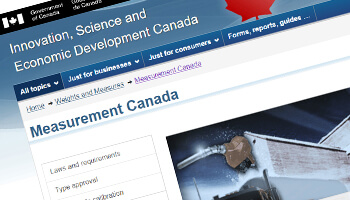If you use scales for industrial purposes, you already know the important role that professional weighing solutions play in optimizing your operations and keeping your business and inventory on track. Whether you’re handling heavy-duty payloads like trucks or items that require precision down to the tiniest molecule, precision balances perform at their best when they are properly maintained and cared for. Scale recalibration plays an integral role in guaranteeing the accuracy and efficiency of your equipment, as well as promoting longer lifecycles. Below, we’ll discuss some of the core reasons you need to stay on top of recalibration practices. Read on to learn more!
What is Calibration?
In the weighing industry, calibration refers to the process of checking and refining a scale’s accuracy. Calibration is done by conducting several different tests and cross-referencing the results with acceptable standards, as well as previous datasets provided by your equipment. This process allows you to quickly identify any major issues that may be affecting the performance and reliability of your scales. Different models, as well as different usages, will require varying maintenance and calibration schedules ranging from as little as once a year all the way up to every few months or less.
Why is Calibration Non-Negotiable?
As we’ve mentioned above, calibration plays a key role in ensuring the accuracy of your weigh scales. The validity of your results is not only important for efficiency but, for industrial purposes, is a must for safety and legal purposes when buying and selling. While certain variations in payload readings can be expected, and even found to be acceptable over time, where results directly affect consumers or the standardized reporting of your operation, major deviations from the standard must be addressed.
The simple fact of the matter is that ALL scales are affected by outside factors that will, over time, degrade their accuracy. From heavy loads that cause wear and tear to environmental elements that can affect internal working pieces, electrical overloads, and more, there are countless factors that can lead to inaccurate readings. Calibration makes sure you’re always on the right track and have ample opportunity to make repairs before facing fines or progressive damage that forces you to replace your equipment entirely.
What Are the Benefits of Calibration?
While the most obvious reason to stay on top of calibration cycles is guaranteeing the accuracy of your equipment, you also stand to save thousands in costly fines and incur multiple benefits as well. Key benefits of calibration include:
- Accurate weight measurements
- Keeps your operations certified and legal for trade (where relevant)
- Maintains a positive customer experience and builds your brand through dependability.
How Do You Know When it’s Time To Calibrate?
As we mentioned early, different scale models will have their own set standards for how often they need to be calibrated under normal circumstances. While you should always adhere to these timelines, it’s important to note that they are not the only time you need to calibrate. Calibration and evaluation should be done regularly, especially if your weighing equipment has begun to display any irregularities, has been subject to more stress than usual (aka shock loading), or there are any visible signs of wear and tear. Prevention equals protection is a key motto to keep in mind where weighing equipment is concerned, and abiding by a regular calibration schedule will keep your scales ruining as close to perfect as possible for the many years to come.
Always Here to Help!
Are you in need of scale calibration and repair services? As Western Canada’s leading choice for weighing solutions, Accurate Scale is here to help! Our team is proud to offer extensive in-house services, including scale calibration and more. Learn how we can help your scales stay in top shape by contacting our team today.

